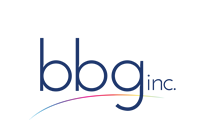Last week I wrote about improving healthcare literacy. It’s an important and worthy goal. However, I always juxtapose this with something a highly respected physician colleague and friend said to me a few years back. It really resonated with me back then and still does today.
He said that the push for improving the public’s health literacy and increased consumerism is good. The more knowledgeable people can become about their healthcare the better. However, he also cautioned that the expectations of predicted great gains in cost savings and improved system efficiency from increased consumer knowledge were a bit unrealistic. They needed to be tempered. Healthcare is so dynamic and so complex that as a physician he had to really work hard to stay on top of best practices, new developments in medicine, the cost and outcome implications of various types of treatment, etc. His point was that if he, as an experienced physician with years of training and treating patients had to work so hard to stay on top of the latest developments and trends, then it is unrealistic to expect that consumers with day jobs and no medical training at all could understand the complexities of our healthcare system.
We know from years of analyzing data and our experience that the most experienced doctors with good teams around them deliver the best possible outcomes – clinical, functional and financial.
So I think the best bet – whether it’s you, your family members, or your employees – is still to do your homework and choose the best and most experienced doctors around.
Last week’s post in case you missed it…

